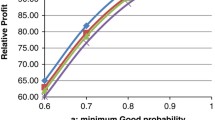Abstract
We provide a detailed characterization of arbitrage-free asset prices in the presence of capital gains and income taxes. The distinguishing feature of our analysis is that we impose on the model two important features of the tax code: the limited use of capital losses and the inability to wash sell. We show that under remarkably mild conditions, the lack of pre-tax arbitrage implies the lack of post-tax arbitrage with the limited use of capital losses. The conditions are that the risk free interest rate be positive and that tax rates on interest income exceed capital gains tax rates. The result also holds when only a wash sale constraint is imposed and no investor holds a portfolio with a large capital loss. We allow investors to face different tax rates and have different bases for the calculation of capital gains taxes. The characterizations we provide have important implications for both asset pricing and portfolio choice. Our results imply that models that use arbitrage-free pre-tax models continue for derivative pricing and hedging are also arbitrage free in a world with taxes. Similarly, portfolio choice models with taxes typically specify pre-tax arbitrage free price processes and then analyze portfolio choice in the presence of taxes. In these models, it is unclear if portfolio recommendations are based on risk-return tradeoffs or on the arbitrage opportunities present in the model. Our results imply that if the above features of the tax code are modeled explicitly, then we can isolate the post-tax risk-return tradeoffs.
Similar content being viewed by others
References
Constantinides G.: Capital market equilibrium with personal tax. Econometrica 51, 611–636 (1983)
Constantinides G.: Stock trading with personal taxes: implications for prices and the abnormal january returns. J. Financ. Econ. 13, 65–89 (1984)
Constantinides G., Scholes M.S.: Optimal liquidation of assets in the presence of personal taxes: implications for asset pricing. J. Financ. 35, 439–449 (1980)
Dammon R., Dunn K., Spatt C.: A reexamination of the value of tax options. Rev. Financ. Stud. 2, 341–372 (1989)
Dammon R., Green R.: Tax arbitrage and the existence of equilibrium prices for financial assets. J. Financ. 42, 1143–1166 (1987)
Dammon R., Spatt C.: The optimal trading and pricing of securities with asymmetric capital gains taxes and transaction costs. Rev. Financ. Stud. 9, 921–952 (1996)
Dammon, R., Spatt, C., Zhang, H.: Diversification and capital gains taxes with multiple risky assets. Working Paper, Carnegie Mellon University (2001)
Dammon R., Spatt C., Zhang H.: Optimal consumption and investment with capital gains taxes. Rev. Financ. Stud. 14(3), 583–616 (2001)
Dammon R., Spatt C., Zhang H.: Optimal asset location and allocation with taxable and tax-deferred investing. J. Financ. 59(3), 999–1037 (2004)
De Miguel V., Uppal R.: Portfolio investment with the exact tax basis via nonlinear programming. Manage. Sci. 55(2), 277–290 (2005)
Dybvig P., Koo H.K.: Investment with Taxes. Washington University, St Louis (1996)
Dybvig P., Ross S.: Tax clienteles and asset pricing. J. Financ. 41, 751–762 (1986)
Ehling P., Gallmeyer M., Srivastava S., Tompaidis S., Yang C.: Portfolio Choice with Capital Gain Taxation and the Limited Use of Losses. University of Virginia, Virginia (2010)
Gallmeyer M., Kaniel R., Tompaidis S.: Tax management strategies with multiple risky assets. J. Financ. Econ. 80, 243–291 (2006)
Garlappi L., Huang J.: Are stocks desirable in tax-deferred accounts?. J. Public Econ. 90, 2257–2283 (2006)
Garlappi L., Naik L.V., Slive J.: Portfolio Selection with Multiple Assets and Capital Gains Taxes. University of British Columbia, New York (2001)
Horan S.M.: After-tax valuation of tax-sheltered assets. Financ. Serv. Rev. 11, 253–276 (2002)
Huang J.: Taxable and tax-deferred investing: a tax-arbitrage approach. Rev. Financ. Stud. 21(5), 2171–2207 (2008)
Hur, S.-K.: Optimal portfolio selection with personal tax. Working paper, University of Chicago (2001)
Jensen B.A.: Valuation before and after tax in the discrete time, finite state no arbitrage model. Ann. Financ. 5(1), 1614–2446 (2009)
Jensen B.A., Marekwica M.: Optimal Portfolio Choice with Wash Sale Constraints. Copenhagen Business School, Frederiksberg (2010)
Marekwica M.: Optimal tax-timing and asset allocation when tax rebates on capital losses are limited. Copenhagen Business School, Frederiksberg (2009)
Ross S.: Arbitrage and martingales with taxation. J. Political Econ. 95, 371–393 (1987)
Schaefer S.M.: Taxes and security market equilibrium. In: Sharpe, W., Cootner, C. (eds) Financial Economics: Essays in Honor of Paul H. Cootner, pp. 159–178. Prentice-Hall, Englewood Cliffs, New Jersey (1982)
Sibley M.: On the valuation of tax-advantaged retirement accounts. Financ. Serv. Rev. 11, 233–251 (2002)
Author information
Authors and Affiliations
Corresponding author
Additional information
An earlier version was circulated under the title “No Arbitrage and Portfolio Choice with Taxes.” We would like to thank Gert Bekaert, Eric Bradley, Stephan Dieckmann, Paul Ehling, Burton Hollifield, Bjarne Astrup Jensen, Marcel Marekwica, J. Spencer Martin, and seminar participants at the EIASM Workshop on Dynamic Strategies in Asset allocation and Risk Management for useful discussions. Michael Gallmeyer acknowledges funding support from the DeMong-Pettit Research Fund at the McIntire School of Commerce.
Rights and permissions
About this article
Cite this article
Gallmeyer, M., Srivastava, S. Arbitrage and the tax code. Math Finan Econ 4, 183–221 (2011). https://doi.org/10.1007/s11579-011-0040-7
Received:
Accepted:
Published:
Issue Date:
DOI: https://doi.org/10.1007/s11579-011-0040-7




